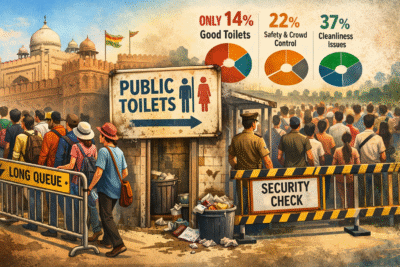
On February 15, 2024, the Supreme Court of India delivered a unanimous verdict, with two separate judgments, declaring the Electoral Bond Scheme (EBS) unconstitutional. This decision can potentially send shockwaves through Indian politics, prompting discussions about its implications for political funding and future reforms. Let’s delve deeper into the issues raised in the case, the court’s verdicts, and the reasons behind declaring the EBS unconstitutional.
Issues raised in the case:
Several petitioners, including political parties and transparency activists, challenged the EBS on various grounds:
- Violation of Right to Equality (Article 14): The anonymity associated with electoral bonds was argued to disproportionately benefit big donors and corporations, creating an uneven playing field for smaller parties and individuals. This was deemed violative of the principle of equality before the law.
- Violation of Right to Information (Article 19(1)(a)): The lack of transparency regarding the source of donations was highlighted as undermining the right to know and hindering public scrutiny of political funding. This raised concerns about potential corruption and undue influence on political parties.
- Undermining level-playing field: Critics argued that anonymous donations could lead to quid pro quo arrangements between donors and recipients, favouring certain parties and tilting the electoral balance.
- Inadequate safeguards: Doubts were raised about the effectiveness of safeguards within the scheme to prevent misuse of funds and influence from foreign entities.
- Lack of legislative scrutiny: The EBS was introduced through an ordinance, bypassing Parliament, which drew criticism for circumventing democratic processes and parliamentary oversight.
Verdicts and Reasoning:
While the two written judgments by Justices D.Y. Chandrachud and K.M. Joseph differ in emphasis on specific aspects, both arrive at the same conclusion: the EBS is unconstitutional. Here are the key arguments presented:
- Anonymity Violates Rights: Both judgments agreed that anonymity in political funding inherently compromises the right to equality and right to information. The court acknowledged the legitimate interest in regulating black money, but deemed anonymity in the EBS excessive and disproportionate, impacting transparency and fairness.
- Level Playing Field Concerns: The court acknowledged the potential for uneven electoral influence due to anonymous donations. Justice Chandrachud emphasized the dangers of “money becoming the voice of democracy,” while Justice Joseph highlighted the risk of “undue influence” on parties.
- Inadequate safeguards: The court found the existing safeguards within the EBS insufficient to address concerns about misuse of funds and foreign influence. Justice Chandrachud expressed doubts about the ability to track illegal funds, while Justice Joseph questioned the effectiveness of KYC norms.
- Lack of legislative scrutiny: Both judgments criticized the bypassing of Parliament through an ordinance, reiterating the importance of legislative debate and scrutiny in matters of electoral funding.
Overall, the Supreme Court struck down the EBS due to:
- Its incompatibility with fundamental rights (Article 14 and 19(1)(a)) due to anonymity.
- Concerns about its potential to undermine the level playing field in elections.
- Inadequacy of safeguards against misuse and foreign influence.
- Circumvention of parliamentary scrutiny through an ordinance.
Implications and future:
The verdict has significant implications for political funding in India. The immediate impact is that political parties will lose the anonymous financing mechanism offered by the EBS. However, the long-term impact remains to be seen. The court has not suggested a specific alternative, leaving the question of political funding reform open for debate and legislative action.
It is likely that the verdict will be challenged in a review petition, leading to further legal and political discourse on the subject. Additionally, the government and Election Commission will need to work towards establishing a transparent and equitable system for political funding in accordance with the court’s pronouncements.



